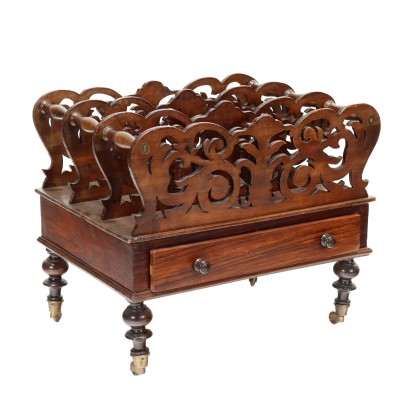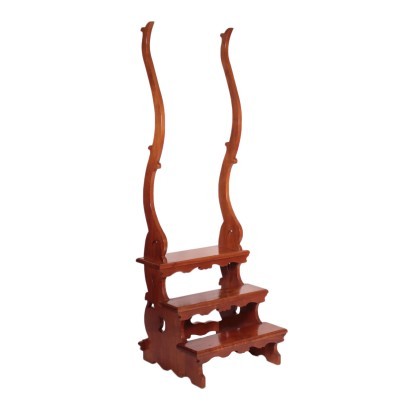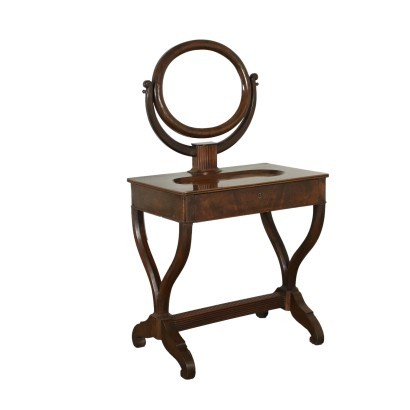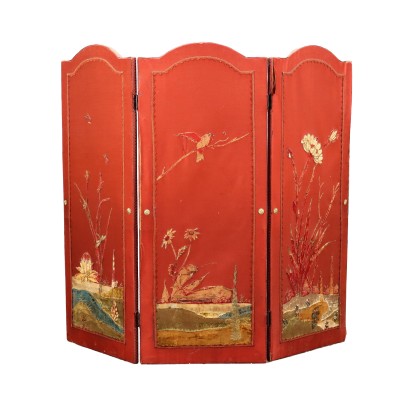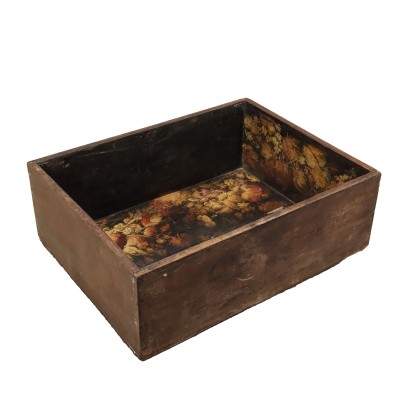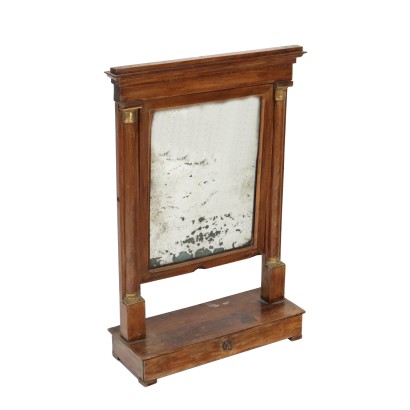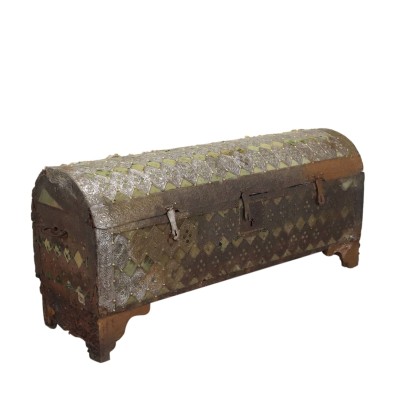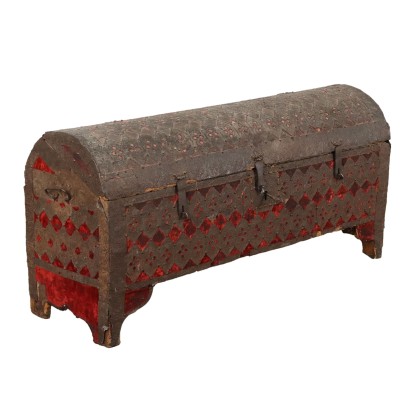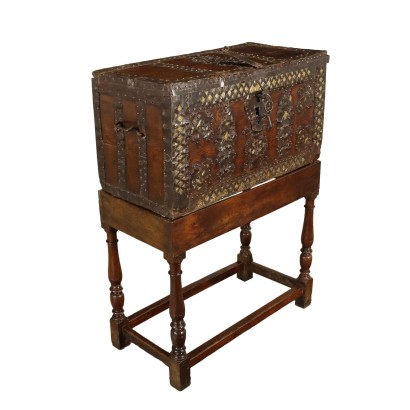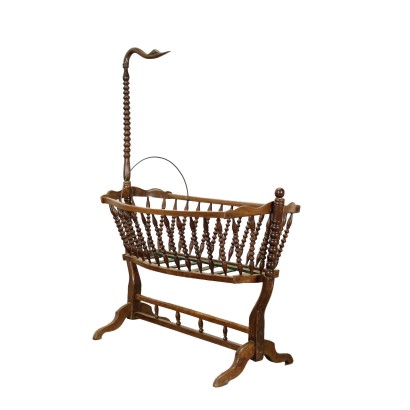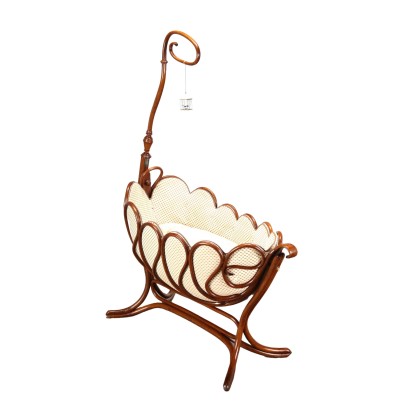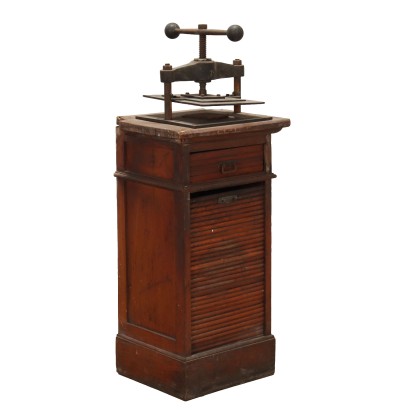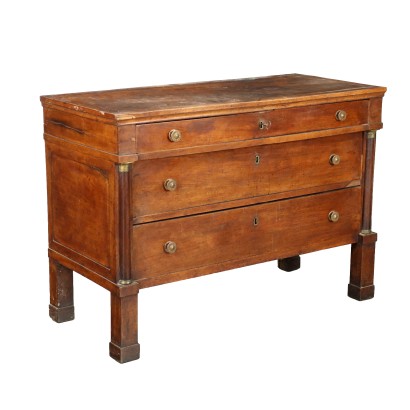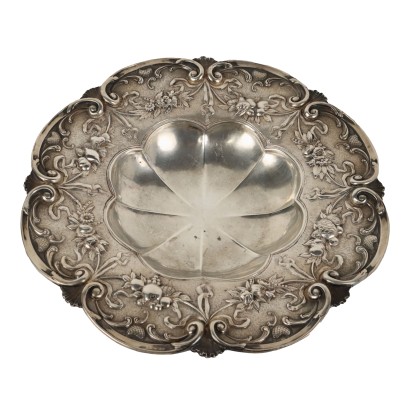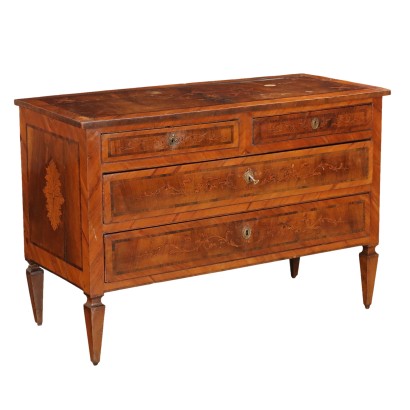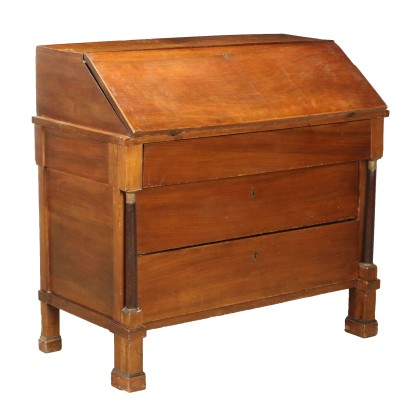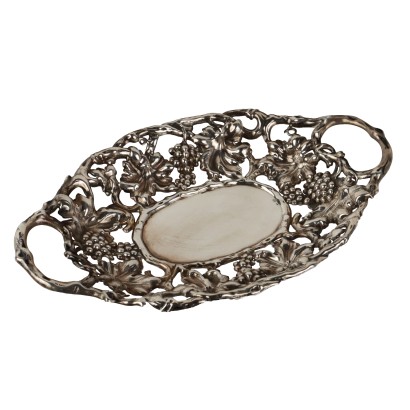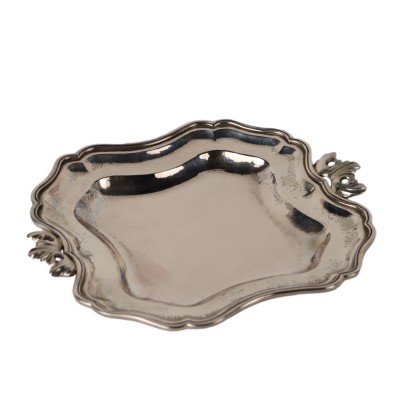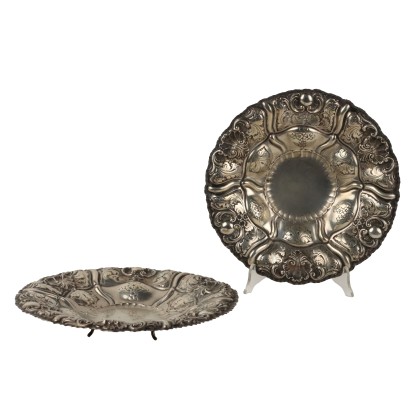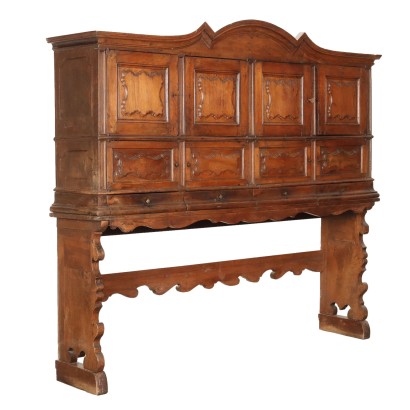Magazine Rack Walnut Italy XIX-XX Century - Italy Late 19th - Early 20th Century
Features
Italy Late 19th - Early 20th Century
Age: 19th Century / 1801 - 1900 , 20th Century / 1901 - 2000
Origin: Italy
Material: Walnut Veneer , Other Wood
Description
Magazine rack in walnut veneered style, Italy, late 19th - early 20th century. It has 3 shaped and perforated magazine rack compartments connected by turned crosspieces, drawer in the band, turned legs with wheels. Cherry interior.
Product Condition:
Product that due to age and wear requires restoration and resumption of polishing.
Dimensions (cm):
Height: 43,5
Width: 51
Depth: 37
Additional Information
Age:
19th Century / 1801 - 1900
19th Century / 1801 - 190020th Century / 1901 - 2000
20th Century / 1901 - 2000Main essence:
Cherry
Obtained from prunus cerasus , a plant of oriental origin, it is a hard wood with a light and delicate color, with a reddish vein. Due to its diffusion and availability it was used in Europe in popular furniture. In cabinet making, in the seventeenth century, it was widely used in France and England for inlay work. In Italy it was very successful in Lucca. It was also very popular in the United States for the manufacture, from the late 1600s, of commonly used furniture.The dictionary of antiques: Eclecticism
Classic Monday: a sofa from the 1800s example of eclecticism
Walnut
Walnut wood comes from the plant whose botanical name is juglans regia , probably originally from the East but very common in Europe. Light or dark brown in color, it is a hard wood with a beautiful grain, widely used in antique furniture. It was the main essence in Italy throughout the Renaissance and later had a good diffusion in Europe, especially in England, until the advent of mahogany. It was used for solid wood furniture and sometimes carvings and inlays, its only big limitation is that it suffers a lot from woodworm. In France it was widely used more than anything else in the provinces. In the second half of the eighteenth century its use decreased significantly because mahogany and other exotic woods were preferred.Material:
Walnut Veneer
Other Wood
Other customers have searched:
Bauli, altri mobili antichi..
Per saperne di più, consulta anche i nostri approfondimenti sui bauli:
Un breve viaggio nella storia dei bauli, sul nostro blog
Un bellissimo baule da viaggio di Luis Vuitton
Il dizionario dell'antiquariato – Pastiglia
Sull'antiquariato in generale dai un'occhiata anche a
Classic Monday: da un pezzo dei nostri magazzini alla storia dell'antiquariato
L'antiquariato dalla A alla Z: il Dizionario dell'Antiquariato
Il dizionario dell'antiquariato - Lastronatura
Il dizionario dell'antiquariato - Mascherone
Il dizionario dell'antiquariato - Natura morta
Il dizionario dell'antiquariato - Opificio
Il dizionario dell'antiquariato - Pastiglia
Il dizionario dell'antiquariato - Savonarola
Il dizionario dell'antiquariato - Rosone
.
Se ti interessano i mobili d'antiquariato Scopri qui tutte le presentazioni dei prodotti d'antiquariato più belli, eleganti e preziosi su FineArt by Di Mano In Mano
Sull'antiquariato in generale dai un'occhiata anche a:
Classic Monday: da un pezzo dei nostri magazzini alla storia dell'antiquariato
L'antiquariato dalla A alla Z: il Dizionario dell'Antiquariato
Il dizionario dell'antiquariato - Lastronatura
Il dizionario dell'antiquariato - Mascherone
Il dizionario dell'antiquariato - Natura morta
Il dizionario dell'antiquariato - Opificio
Il dizionario dell'antiquariato - Pastiglia
Il dizionario dell'antiquariato - Savonarola
Il dizionario dell'antiquariato - Rosone
Infine, dai un'occhiata alle nostre rubriche di divulgazione sulla storia delle arti decorative e d'arredo:
Epoche
Lavorazioni e tecniche
Mostre ed Eventi
Protagonisti
Alternative proposals
It could also interest you



